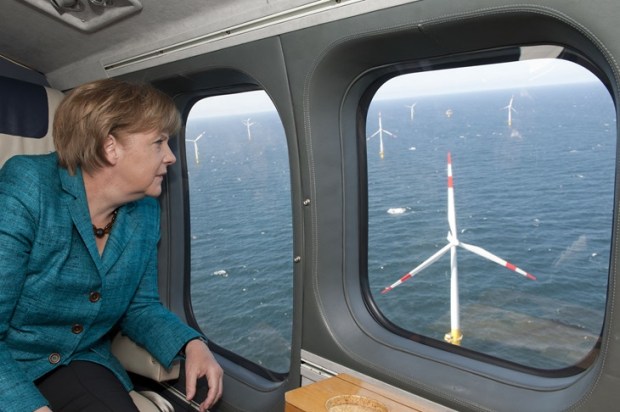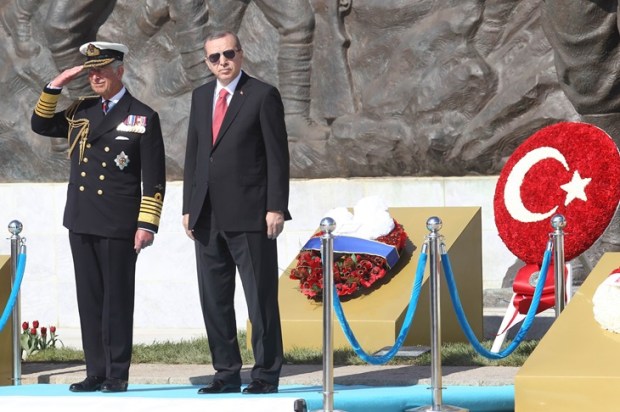I have a certain affinity with the idea of an Australian head of state, although I must admit that it has waned somewhat over recent years – possibly due to advancing age and a better understanding of the underlying issues, and possibly, maybe even probably, because the Australian Republican Movement has been chaired for a number of years now by Peter Fitzsimons, a man whose shallow understanding of the issues plumbs toddler’s pool depths.
In Sunday’s’s Sun–Herald, that vacuousness was on full display in a column headed “With the royals at war, let’s plan our republic’.
He does not get off to a good start:
“If you like laws and sausages,” the Iron Chancellor of Germany, Otto von Bismarck, once said, “you should never watch either one being made.”
In fact, it is generally accepted that this aphorism originated with American lawyer and poet John Godfrey Saxe, who was quoted to this effect in the Cleveland Herald in 1869.
Since changing the head of state necessarily involves a change to our Constitution, one would think a fair degree of attention to detail would be a prerequisite. Admittedly, the above misattribution is neither here nor there in the grand scheme of things, however, Fitzsimons engenders rather more concern with his following observation:
Might I say the same message about lifting the veil applies broadly to those Australian monarchists who insist there is something truly special about the British royal family, that they are so far ahead of all other families, it really is their place to reign over us by “divine right” for generation after generation?
I don’t know how many Australian monarchists concern themselves with the world rankings of families, royal or otherwise. I suspect the number is minuscule. But if Fitzsimons thinks the British royal family reigns over us by ‘divine right’, he demonstrates that he fundamentally misunderstands the system which he so excoriates. Firstly, the British royal family does not reign over us. The reigning monarch of Great Britain, Queen Elizabeth II pro tem, is our de jure Head of State. It can be argued that the Governor-General is our de facto Head of State. The other members of the Royal Family have no place in our governance, although they are accorded a degree of respect consistent with their relationship to the Monarch. It is not the Royal Family, dysfunctional as it might be from time to time, that is important. It is the institution of the Monarchy, and the conduct of the person who holds that office at the time, that should concern us.
And as to ‘divine right’, that concept was effectively kicked into touch at the time of the Glorious Revolution of 1688, when the British Parliament determined that it held the gift of the British Crown and offered it jointly to William of Orange and his wife, Mary. That gift still resides with the British Parliament which could, if it wished, dispense with the monarchy. In the unlikely event this occurred, it would not (at least in theory) affect Australia. In our governance, the monarch is King or Queen of Australia and he/she would continue in that role regardless of his/her status in the United Kingdom.
It is not a matter of ‘divine right’ but a practical arrangement that allows us to draw on a centuries-old tradition that ensures that the ultimate authority in our governance is genuinely disinterested. In the sense of governance and accountability, our current arrangement – our constitutional monarchy – is, arguably, one of the most effective in the world. The events of 1975 proved that conclusively, when an incompetent government was dismissed, not for being incompetent, but for its intention to govern without Supply. It was convincingly replaced at a subsequent election. Clearly, on that occasion, the people believed that the Crown acted in their interests – which is ultimately the function of the Crown in our society.
And the only objection to that arrangement is cosmetic – that our de jure Head of State is not an Australian citizen. Removing the Queen from our body politic is analogous to changing the living room curtains. But, paradoxically, that is its strength. How long that advantage will survive the demise of Queen Elizabeth II is moot, which is one of the reasons I still subscribe, in principle, to the idea of an Australian Head of State. When you have surgery, you are told ‘all surgery comes with a degree of risk’. This is also true of tinkering with the Constitution. Right now, my feeling is that the system ‘ain’t broke’ – I can live with the curtains. But, having said that, if the question comes to a referendum, and the model proposed is essentially the same as in 1999, I would be inclined to vote YES.
Fitzsimons then goes on to detail the various Sussex claims that he believes discredits the Royal Family and treats them as holy writ. We need not go into this. But he concludes with the following ‘feel good’ rhetoric:
One issue that has come up in the enormous response has been what the Australian head of state should be called. I would prefer something other than “president” and would be happy to stay with “governor-general” as that would connote a continuity of the role, even though the position would be resting on Australian democracy, not English “divine right”.
Another suggestion though, from historian Benjamin T. Jones, in his book This Time is that the term be “elder”, which ARM member Ken Waugh suggests be “national elder”, which I like. It could only be done after consultation and agreement from the people of the First Nations, but it has a very Australian feel to it, yes? And would be a nod towards reconciliation. And as Jones points out, the word “elder” also has resonance among religious congregations, so with their blessing too, it would be particularly inclusive.
Your thoughts, welcome!
Tim Blair would no doubt have a view on the use of commas but, being a pretty relaxed sort, I’ll leave that to him. As regards the substance of this riveting conclusion, what can I say? If this bloke were any more woke he’d be on a diet of bennies and caffeine. ‘National Elder’? Really?
I wonder if his aversion to the term ‘President’ has more to do with a recent holder of that title than to any semantic consideration. And why would the use of the term ‘elder’ require agreement from our ‘First Nations’ people? Do they have copyright on the term? And no, ‘National Elder’ does not have a ‘very Australian feel to it’.
My thoughts, Peter? Do some homework. The Queen does not make sausages. But nor does she make laws.
Got something to add? Join the discussion and comment below.
Get 10 issues for just $10
Subscribe to The Spectator Australia today for the next 10 magazine issues, plus full online access, for just $10.

























Comments
Don't miss out
Join the conversation with other Spectator Australia readers. Subscribe to leave a comment.
SUBSCRIBEAlready a subscriber? Log in